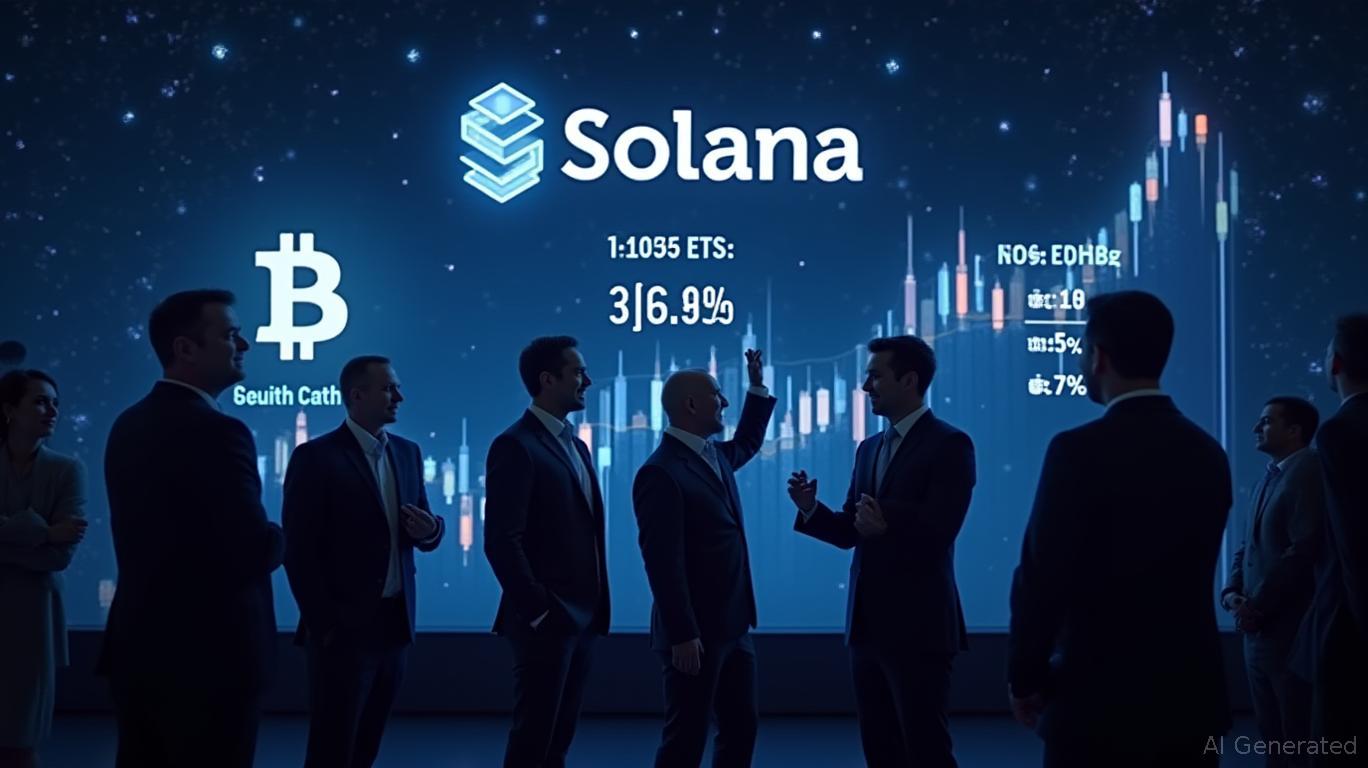Settlement Reached Soon in Fetch-Ocean Conflict, Putting Decentralized Governance Approaches to the Test
- Fetch.ai and Ocean Protocol near settlement: Fetch proposes dropping lawsuits if Ocean returns 286M FET tokens ($120M) to the community. - Dispute stems from 2024 ASI Alliance merger, with Fetch accusing Ocean of covert token conversions that triggered FET's 93% price collapse. - Ocean denies misconduct but agrees to return tokens if formalized, while Fetch offers $250K bounty for evidence of alleged multisig wallet signatories. - Resolution could set precedent for decentralized governance disputes, avoi
The ongoing conflict between Fetch.ai and Ocean Protocol has reached a pivotal stage, as both parties are reportedly moving closer to an agreement that could resolve one of the most heated token disputes in the AI-blockchain industry. On October 24, Fetch.ai CEO Humayun Sheikh stated that his company would withdraw all legal actions against Ocean Protocol if Ocean returns 286 million
The dispute stems from the Artificial Superintelligence (ASI) Alliance, a partnership formed in 2024 that brought together Fetch.ai, Ocean Protocol, and SingularityNET under a unified token system based on FET. The alliance was designed to merge decentralized AI resources by integrating data, computing power, and model-sharing. However, the situation worsened in mid-2025 when Fetch.ai accused Ocean Protocol of secretly creating extra OCEAN tokens before the merger and swapping them for FET without proper transparency. Sheikh claimed these tokens were spread across several wallets and sold on exchanges, damaging community confidence and sparking a market downturn, as reported by Yahoo Finance.

Ocean Protocol has refuted all accusations, maintaining that its treasury activities were open and followed governance rules. The foundation also blamed Fetch.ai and SingularityNET for poorly timed liquidity moves that worsened market volatility. In a public response, Ocean’s founder Bruce Pon attributed the sharp decline in FET’s price to overall market trends, liquidity challenges, and significant sales by alliance partners, while defending the financial management of the merger, according to Yahoo Finance.
Sheikh’s proposal—dependent on Ocean Protocol returning the contested tokens—has been received with cautious hope. GeoStaking, a validator node that facilitated the negotiations, confirmed that Ocean is prepared to cooperate once a formal offer is made. If successful, the agreement could prevent lengthy court battles and help rebuild trust among token holders, though doubts persist. Sheikh also revealed a $250,000 reward for information on the signers of Ocean Protocol’s multisig wallet, who he alleges managed the token swaps. The reward has now been closed, with Sheikh stating he has enough evidence to pursue legal action if the settlement does not succeed, according to Yahoo Finance.
In the meantime, Fetch.ai has introduced measures to support FET’s price. The company announced it would burn 50 FET per wallet registered on its asi1.ai platform each week, aiming to decrease supply and stimulate demand. Technical indicators suggest the token could be forming a bottom near $0.23, with buyers trying to recover the 7-day simple moving average (SMA) and the relative strength index (RSI) showing divergence from oversold territory, according to
This dispute carries wider significance for decentralized governance in blockchain partnerships. Observers argue that the conflict exposes weaknesses in collaborative models, where misaligned interests and lack of transparency can erode trust. Should the settlement go through, it may serve as a model for resolving major token disputes without drawn-out legal battles—a crucial test for the legitimacy of decentralized governance frameworks in 2025.
Disclaimer: The content of this article solely reflects the author's opinion and does not represent the platform in any capacity. This article is not intended to serve as a reference for making investment decisions.
You may also like
Bitcoin Updates: Swiss Crypto Lending Offers 14% Returns Alongside Bank-Backed Insurance
- Swiss crypto lender Fulcrum offers 14% APR on stablecoins with Lloyd's insurance and FINMA regulation. - Platform uses 50% LTV over-collateralization and institutional-grade security to mitigate market risks. - Targets inflation-hedging investors by bridging traditional finance gaps with insured crypto yields. - Competes with alternatives like Bitget's zero-interest loans but emphasizes regulatory compliance and capital preservation.

Bitcoin News Update: Analyst Highlights How MSTR's Convertible Bonds Prevent Forced Bitcoin Sales
- MSTR's convertible debt structure allows debt repayment via cash, stock, or both, avoiding Bitcoin sales during market downturns. - The company raised €350M through a 10% dividend-bearing euro-denominated preferred stock offering to fund Bitcoin purchases. - Q3 results showed $3.9B operating income from Bitcoin gains, driving a 7.6% stock surge to $273.68 post-earnings. - Risks persist if Bitcoin fails to rally in 2028, potentially forcing partial liquidation amid $1.01B 2027 debt obligations. - MSTR hol

Solana News Today: Solana ETFs Surpass Bitcoin as Staking Returns Attract Institutional Investments
- U.S. spot Solana ETFs (BSOL/GSOL) attracted $199M in 4 days, outperforming Bitcoin/Ethereum ETF outflows. - 7% staking yields drive institutional inflows as investors rotate capital from major crypto assets. - Despite ETF success, SOL price fell below key support levels, raising concerns about $120 price floor. - Strategic staking and treasury purchases boosted Solana's institutional appeal, with $397M in staked assets. - Market remains cautious as ETF competition intensifies, with Bitwise's BSOL outpaci

Bitcoin News Today: Bitcoin’s Fourth Quarter Surge: Impact of Trade Disputes, Stronger Dollar, and Evolving Global Economic Strategies
- Bitcoin fell nearly 15% in October 2024, its worst quarterly start since 2022, driven by U.S.-China trade tensions, dollar strength, and macroeconomic caution. - A 100% U.S. tariff on Chinese imports and Fed rate-cut delays exacerbated selloffs, triggering $1.3B in liquidations during a flash crash below $103,000. - Key support levels at $107,000 and $101,150 face retests as traders warn of further declines, with market cap dropping below $3.6T amid fragile liquidity. - Wintermute denied Binance lawsuit
